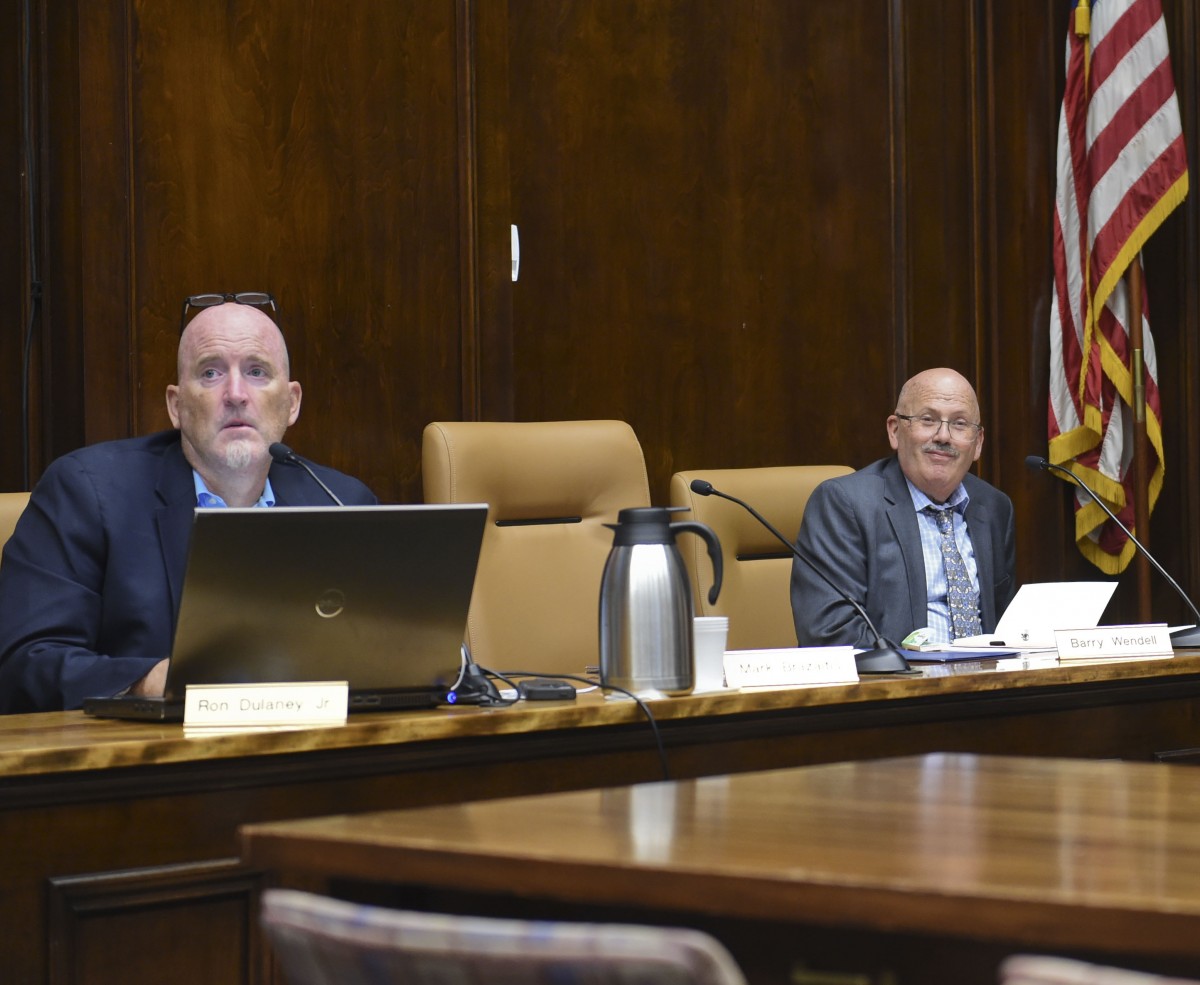MORGANTOWN — Fifth Ward Councilor Ron Dulaney became Mayor Dulaney on Tuesday as a majority of Morgantown City Council opted to deny Bill Kawecki a fourth year in the position.
Council appoints the largely ceremonial positions of mayor and deputy mayor to start the first meeting of the new fiscal year.
A motion to retain Kawecki as mayor received three votes (Rachel Fetty, Kawecki and Jenny Selin). The subsequent vote to appoint Dulaney — currently in his second term — received unanimous support.
A majority of council (Fetty, Kawecki, Selin and Dave Harshbarger) voted to keep Fetty in the deputy mayor role. A motion appointing Cruze received votes from Cruze, Dulaney and Barry Wendell.
Once council got down to business, it balked at an administrative request included in a capital escrow budget amendment that would have provided $100,000 to the United Way to support feeding programs.
Specifically, the funds would have gone to repair and purchase commercial kitchen equipment for the former Ramada Inn building, on Scott Avenue.
The 110,000-square-foot building with a full industrial kitchen and 10-acre property has been identified as a potential future hub for social services.
In the short term, Interim City Manager Emily Muzzarelli explained, the facility would be used for a community food box program.
The Hazel Ruby McQuain Charitable Trust provided $820,000 to the United Way last month to support the program and renovations to the building.
Muzzarelli explained that if council moved forward in assisting with the Ramada project now, it could potentially recoup those funds through federal CARES dollars aimed at COVID-19 relief.
Regardless of whether the CARES money ultimately came through, Muzzarelli said, the Ramada project is worthwhile and is on the move.
“The project is moving. The project needs support. They’ve asked for us to be a supporter of that project,” Muzzarelli said. “I think, sometimes as a city we are adverse to taking risks and are sometimes drug a little bit by others that we’re the last one to join … I think sometimes it’s good to be a leader, and I think, in a lot of ways, the city tries to do that.”
After a lengthy back and forth, the body opted to table the matter in search of additional information.
Concerns over the fiscal uncertainty of facing the city due to COVID-19 as well as the uncertainty of securing CARES money were raised, as were questions about exactly what agencies would be utilizing the facility and when the money would be needed.
“This is a pattern we’ve gotten into where we vote to approve things that we have absolutely no idea what we’re voting to approve,” Cruze said, adding “We have zero details at all, other than an amount of money. I’m just not O.K. with that.”
Lastly, Muzzarelli said the city is working to iron out why the state tax office notified a “very small grouping” of business located outside the city that they needed to begin collecting Morgantown’s additional 1% sales tax on July 1.
She explained that instead of using GIS mapping, the state continues to use a zip code-plus 4 system to determine who pays the who doesn’t
“It’s kind of an antiquated system that doesn’t really make sense, especially in an area or city like Morgantown where we have crazy boundaries,” Muzzarelli said. “I think it’s just going to take some refinement.”
Despite months of work with the city to determine which businesses were to begin collecting the tax, the state included a zip-plus 4 district included in a “special tax district” that the city never provided.
Muzzarelli said the city is putting together information on how shoppers can recoup any undue additional taxes they may have been charged.




